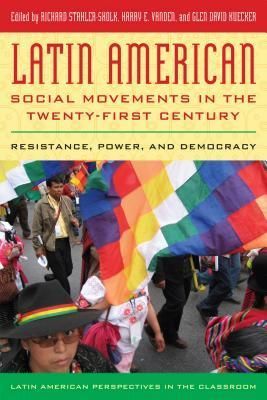
Latin American Social Movements in the Twenty-first Century Resistance, Power, and Democracy
When elected civilians replaced military authoritarian regimes in Latin America in the 1980s, democracy seemed at hand. Yet those nominally democratic regimes implemented widely unpopular neoliberal policies, opening the economies to global market forces with devastating impact on the poor. This clearly written and comprehensive text examines the uprising of politically and economically marginalized groups in Latin American societies. Specialists in a broad range of disciplines interpret the new wave of social movements, including movements in Mexico, Ecuador, Bolivia, Brazil, Colombia, Chile, and Argentina, the Vía Campesina global peasant network, and Mesoamerican coalitions against regional free trade agreements. This volume assembles original research from a variety of case studies in a student-friendly format. Section introductions help students contextualize the essays, highlighting social movement origins, strategies, and outcomes. Thematic sections address historical context, political economy, community-building and consciousness, ethnicity and race, gender, movement strategies, and transnational organizing, making this book useful to anyone studying the wide range of social movements in Latin America. Contributions by: Isabella Alcañiz, Marc Becker, Kwame Dixon, Judith Adler Hellman, Daniela Issa, Glen David Kuecker, María Elena Martínez-Torres, Mariana Mora, Keisha-Khan Y. Perry, Peter M. Rosset, Melissa Scheier, Verónica Schild, David Slater, Rose J. Spalding, Susan Spronk, Richard Stahler-Sholk, Joanna Swanger, Alicia C. S. Swords, Harry E. Vanden, Roberta Villalón, and Jeffery R. Webber